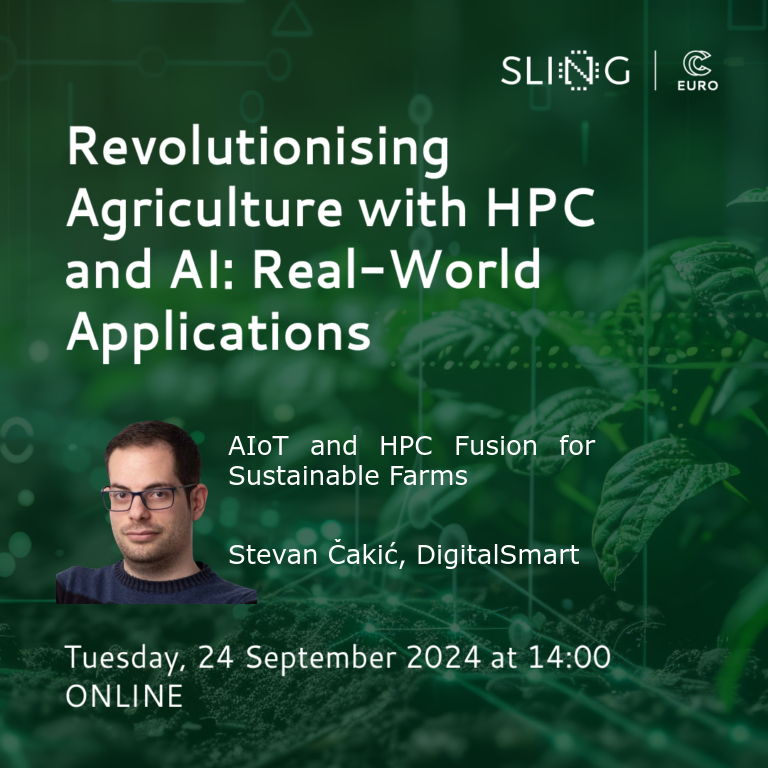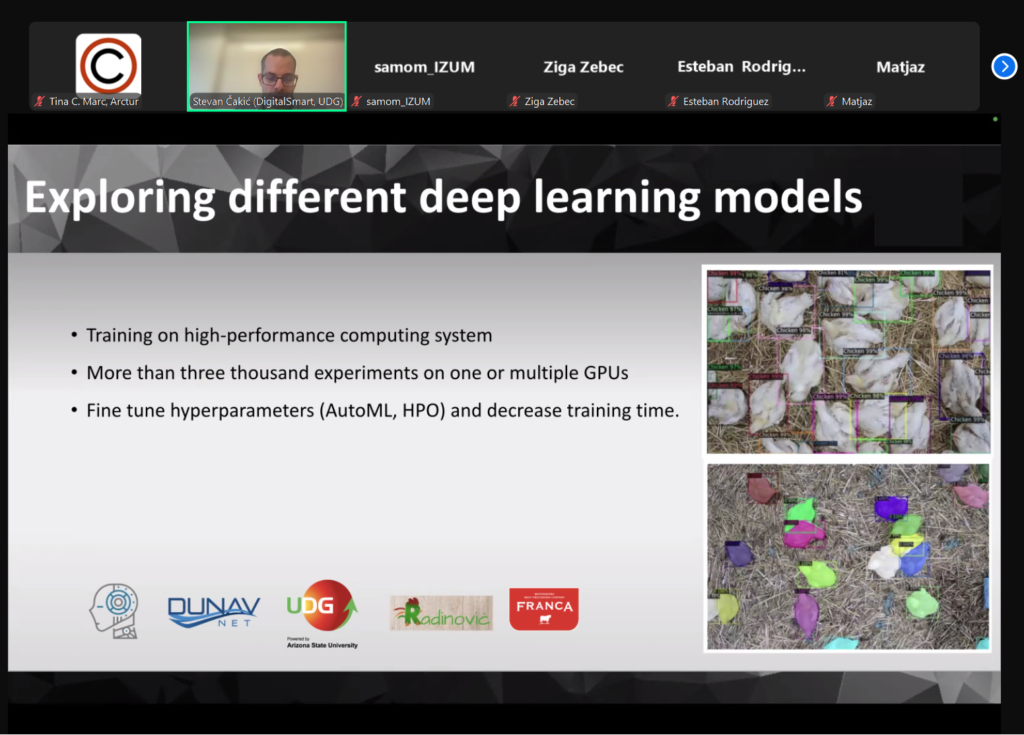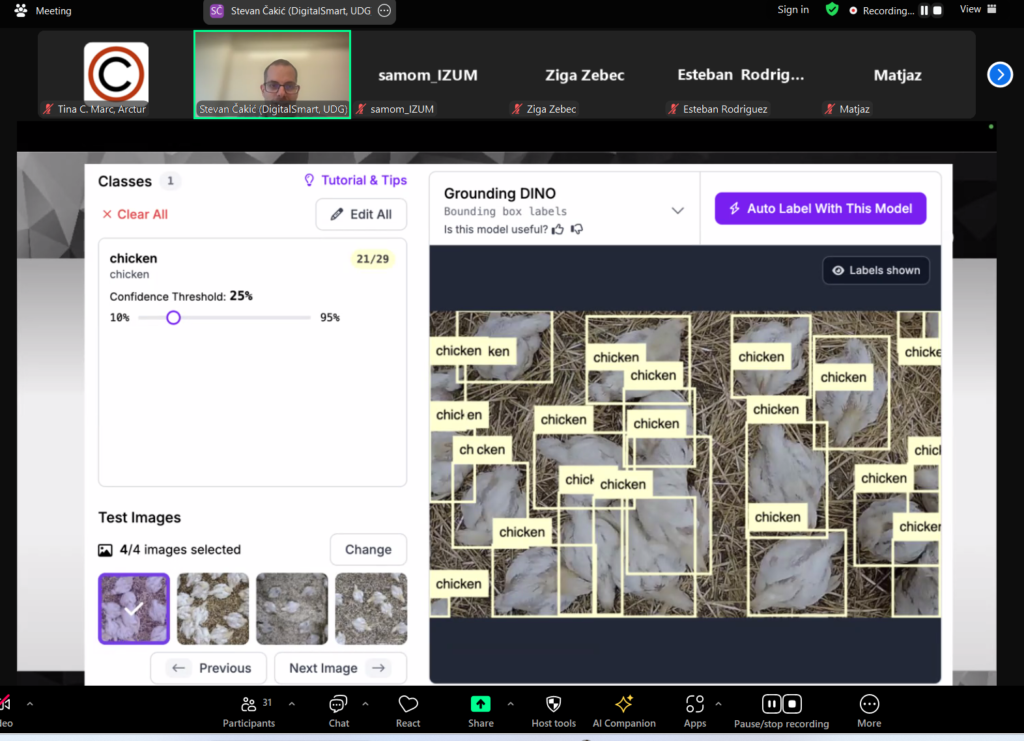At the Revolutionising Agriculture with HPC and AI: Real-World Applications conference, the project, AIMHiGH, was presented, with DigitalSmart as the coordinator. The project, implemented as part of the HPC Fortissimo initiative and funded through the Horizon 2020 FF4EuroHPC program, was titled AI/ML Enabled by HPC for Edge Camera Devices for the Next Generation Hen Farms. Stevan Cakic presented experience with the AIMHiGH project that introduced cutting-edge HPC and AI/ML technologies that significantly impacted the poultry farming sector. One of the key achievements of the project was enabling real-time monitoring and data-driven insights. Farmers gained access to continuous, real-time surveillance of their poultry through edge cameras equipped with AI models. These models could analyze live footage to identify early signs of illness, stress, or abnormal behavior, allowing immediate intervention. This innovation improved animal welfare, minimized losses, and enhanced overall productivity on the farms.

In addition, the project provided an advanced solution for disease detection and prevention. The AI models developed during the project were capable of detecting subtle signs of illness long before they became visible to the human eye. This early detection allowed for more effective prevention and control, reducing the spread of diseases and ultimately leading to lower usage of antibiotics, which had a positive impact on both costs and animal health. Moreover, the project’s technological solutions helped optimize resource usage, particularly in terms of feed and water management. With real-time behavioral and health data from the birds, farmers could adjust feeding schedules and amounts according to actual needs, reducing waste and cutting down on unnecessary resource consumption. This not only reduced environmental impact but also contributed to more efficient and sustainable production practices.

The project’s approach to automating monitoring and decision-making processes also had a transformative effect on production efficiency. By reducing the need for manual supervision, the system allowed farm workers to focus on more critical tasks, leading to higher production outputs while maintaining lower operational costs. A further advantage was the scalability and flexibility of the technology. The use of edge devices allowed these AI models to be easily deployed in various farm setups without requiring expensive infrastructure. This made the technology accessible to both large-scale operations and smaller farms, ensuring that the benefits of AI and HPC could reach a broader segment of the poultry farming industry. Throughout the project, collaboration with key partners played a crucial role. DunavNET contributed its expertise in AI, machine learning, IoT, and software development, while The University of Donja Gorica brought significant HPC expertise through NCC Montenegro and the FoodHub Centre of Excellence. Montenegrin companies Meso-promet Franca and Radinović Company participated actively in the evaluation and piloting phases of the project, ensuring the practical relevance and success of the solutions developed. Overall, the AIMHiGH project was fully aligned with the priorities of Montenegro’s S3 Smart Specialisation Strategy, making significant contributions to technological innovation in the poultry sector, while strengthening the local economy and supporting more sustainable farming practices.


